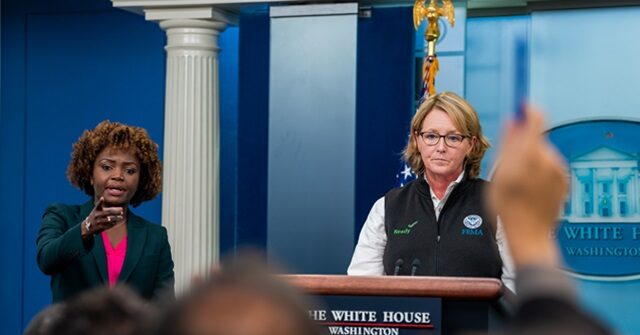On a recent episode of Fox News Channel’s “Special Report,” FEMA Administrator Deanne Criswell discussed the agency’s current financial situation in light of ongoing hurricane responses, specifically for Hurricane Helene and Hurricane Milton. Criswell emphasized that while FEMA has sufficient funds to manage immediate responses to these storms, there are substantial concerns about the financial sustainability for the remainder of the year. She highlighted that the agency had previously tapped into immediate needs funding earlier and anticipates the possibility of needing to do so again come December or January to ensure that essential life-saving measures can continue.
Criswell pointed out that the current funding situation is a result of multi-year budgeting challenges. The agency faces ongoing expenses related to COVID-19 reimbursements, which have stretched resources for disaster recovery further. She expressed the importance of collaborating closely with Congress to secure adequate funding to cover recovery costs for affected communities, emphasizing the commitment to life-saving actions as a priority. This raises concerns not only for immediate responses to natural disasters but also for future preparedness capabilities.
Despite Criswell’s concerns, FEMA Deputy Administrator Erik Hooks provided a contrasting assurance earlier in the day, stating that there is “absolutely enough money” for FEMA and the federal family to effectively manage recovery efforts for Hurricane Helene as well as for Hurricanes yet to come, like Hurricane Milton. This statement underscores the duality of the conversation around funding: while immediate funds may appear sufficient, the looming challenges for continuing recovery operations in the long term remain serious.
The financial dialogue surrounding FEMA’s capabilities highlights broader issues tied to disaster response funding in the U.S. As we face an increasing number of natural disasters, the question becomes not just how to effectively respond to immediate crises but also how to establish a robust and sustainable funding model for long-term recovery efforts. The urgency of these discussions is amplified by the forecasted intensity and frequency of storms due to climate change, thereby calling for a reevaluation of current budgetary constraints and financial strategies within disaster management frameworks.
Furthermore, Criswell’s remarks hint at systemic issues within disaster response funding that require legislative attention. Stakeholders must advocate for more flexible funding channels and improved forecasting mechanisms that align with the real-world costs of disaster recovery. Ensuring that FEMA can meet its obligations without the recurring concern of financial shortfalls will be crucial in maintaining a reliable safety net for communities impacted by disasters.
Ultimately, the dialogue initiated by Criswell and Hooks reveals a clear need for collaborative efforts between FEMA, Congress, and local governments to reassess budgetary practices in disaster response planning. The critical nature of these discussions for both current and future hurricane seasons cannot be understated, as the nation grapples with the challenges presented by climate change and an exhaustive commitment to effective disaster recovery. Addressing these financial challenges head-on will safeguard both the agency’s operations and the welfare of communities affected by catastrophic events.

